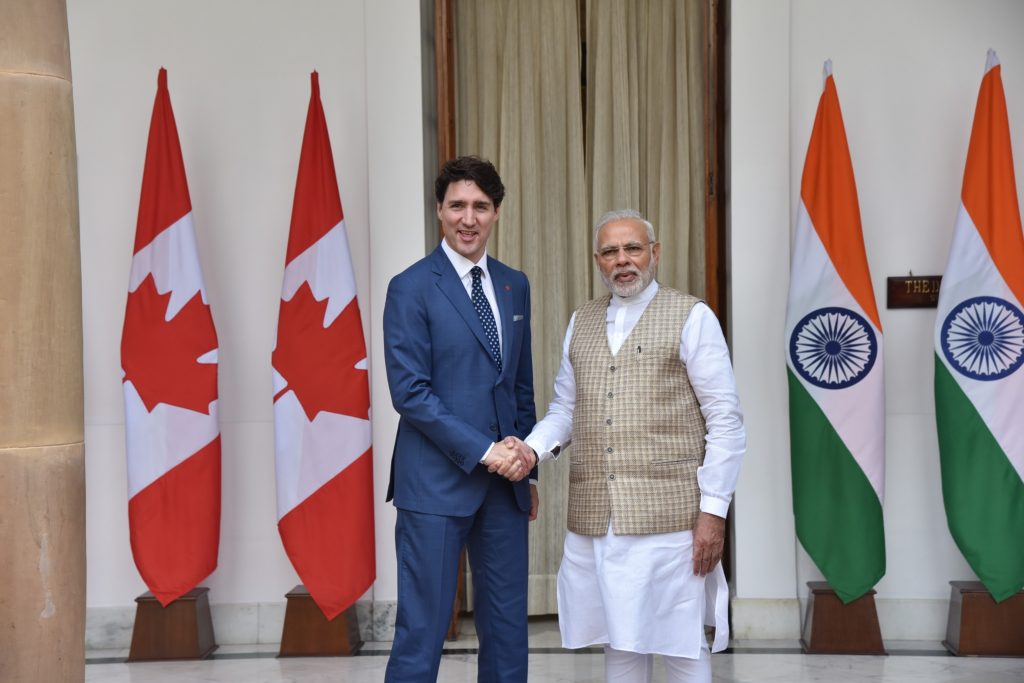
The recent deterioration of relations between Canada and India are a very worrying and unfortunate trend. The politics behind it is obviously complicated, and extremely layered. An impasse such as this has been reached because suddenly the governments of either nation are faced with a situation where there are few, if any, right answers, and lots of wrong ones. But I will not go into any of that and, instead focus on why allowing the impasse to deepen might end up hurting the Canadian society in the long term.
An impact on immigration.
Given low birth rates and a rapidly ageing population, Canada needs immigrants. For all its size and resources, Canada is yet to fulfil its potential and emerge as a titan on the world stage. It needs people, much more than it has right now, to fulfil its shortage of human resources. Canada needs more people to even solve the biggest issue its society faces right now- a shortage in housing. Houses won’t get built fast enough if there is a shortage of labour, a shortage of engineers, architects and other experts who are vital to the construction industry. India supplies the largest pool of immigrants to Canada, by some distance. As a part of the construction industry, which has the ultimate responsibility in resolving the housing crisis, I find it deeply troubling.
Were Canada to become an unattractive destination for Indian talent, the Canadian government will struggle to meet its immigration targets. And mind you, Canada is not the only country vying for Indian talent. It succeeds in attracting a higher number than anybody else primarily due to its reputation as the numero uno destination, which is helped not in the least by the warm and friendly ties that the governments of both countries have enjoyed and the deep cultural ties that exist because of the large Indian diaspora in Canada. Bear in mind that it is not just the construction industry that will be impacted. There will be a shortage of people in pretty much all sectors, ranging from agriculture to services to retail.
An impact on the Canadian society
The issue also has the potential to derail relations between two large groups within the “Indian origin” immigrant community in Canada. Given the long history of immigration, and the presence of multiple generations, the Indian diaspora is hardly homogenous in any sense. As one of the most well established and rooted immigrant populations, Indo-Canadians have perhaps “internalized” the Canadian society as much as any other immigrant group has, if not more. There are Indo-Canadians in every sphere of the society, are represented in all political groups and most importantly, hardly ever function as a “bloc”. This is a reflection of how welcome Canada has made the Indian immigrant feel in this country. While in other immigrant driven societies, the sense of “othering” has not completely gone away, in Canada, Indo-Canadians feel so at home that that they do not feel like a minority, or different at all. This benefits the Canadian society immensely, as an Indo-Canadian immigrant can be “individualistic” rather than “community centric” when it comes to making political and social choices, thus strengthening Canada’s liberal democracy. It also emboldens the members of the community to be more assertive, open and creative.
Were this issue not resolved amicably, and quickly, it has the potential to put “identity” at the front and centre of the debate, create a rift between two large Indo-Canadian groups and create unwelcome long-term fissures in the Canadian society. As history has taught us, a divided society is a dangerous one.
What can be done to resolve the issue.
The Canadian and Indian governments must do their utmost to open back-channel diplomacy which will help tone down the rhetoric. Unfortunately, sections of primarily the Indian media have shown a propensity to be highly sensationalistic regarding the issue, creating a wrong, and negative image about Canada amongst Indians. If people see that the two countries are actively working together to resolve the issue, the unpleasant and unproductive parts of the issue will automatically die down, preparing the ground for discussion on actual issues. There are very real issues at stake here, not the least being Canada’s genuine concern over perceived violations of its sovereignty. There is also the unwelcome spectrum of inflammatory statements coming from within Canada, which the Canadian government must deal with. As I have stated before, the Indo-Canadian society is not politically homogenous, and there are differing, divergent and diverse views at play here, and not just the ones being highlighted. So, there are not a few, but many stakeholders here, all with valid concerns. All stakeholders must be taken on board, as is won’t in any democracy. Ultimately anger and passion do not work well while resolving a crisis. A calm head does. It holds as true in business as it does in diplomacy.

